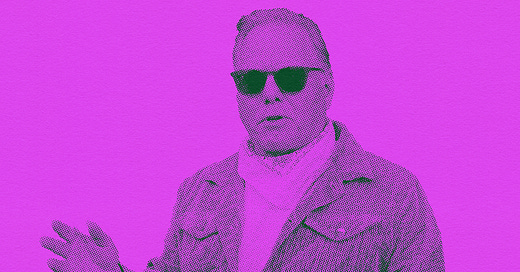Warner Bros. Discovery CEO Endorsed Donald Trump Without Endorsing Donald Trump
Let's get real about what the head of CNN's parent company meant in his Sun Valley Conference remarks.
Earlier this week at the Sun Valley Conference, an annual gathering of media and tech moguls, Warner Bros. Discovery CEO David Zaslav was asked about the upcoming presidential election. Here’s what he had to say, per Bloomberg:
Asked about the upcoming presidential election, Zaslav said it mattered less to him which which party wins, as long as the next …
Keep reading with a 7-day free trial
Subscribe to The Present Age to keep reading this post and get 7 days of free access to the full post archives.




